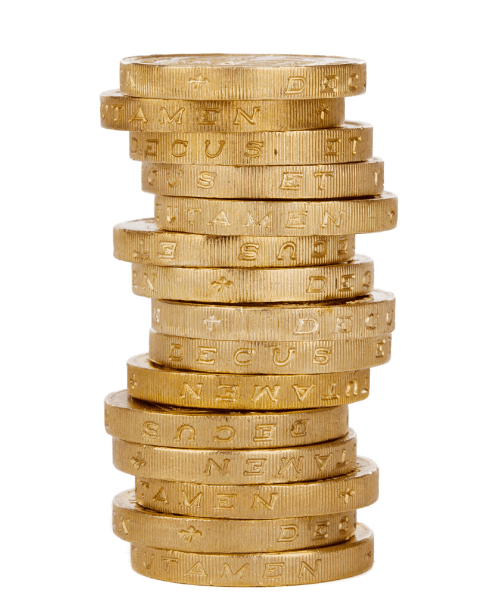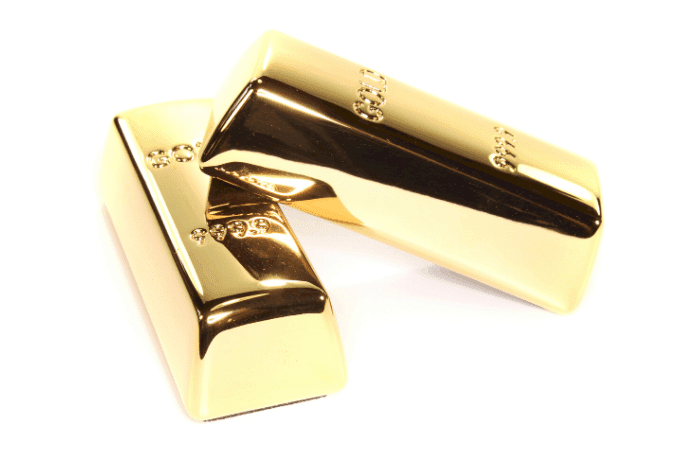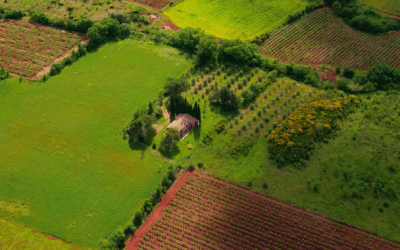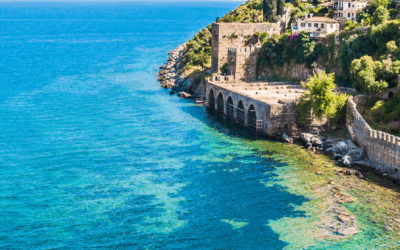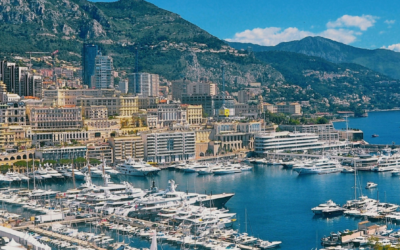Do you remember the 80s?
I was born in 1984, the year that the United States was dubbed the best place to be born. America was already great. It didn’t need to be made “great again.”
Upward mobility, a growing economy, the launch of the tech revolution, and the end of the Cold War. The rest of the world couldn’t compete.
Back then, Germany was split in two, the Chinese were still riding around on bikes, the Soviet Union was in shambles, and almost two billion people lived in extreme poverty.
Let that sink in… in 1980, over 43% of the world’s population lived in extreme poverty.
That’s not the world we live in anymore.
Today, less than 10% of the world lives in extreme poverty, many post-Soviet countries have become the most business-friendly countries on earth, and China now has the biggest car market in the world.
Economies around the world are growing at astonishing rates and new governments are opening their doors to international investors every day.
If you’re not one of those investors, sorry to say it, but your investment strategy is probably stuck in the 80s.
In the 21st century, international investing offers more opportunities and benefits than you could possibly imagine.
If you’re ready to diversify your assets in growing economies and earn higher returns, you’re in the right place.
I’ll teach you the mindset you’ll need to invest successfully overseas and then point you toward the types of investments that will protect and grow your wealth.
Reasons to Invest Overseas
Asset Protection
Holding assets in jurisdiction around the world gives you protection from lawsuits, confiscation by your government, and other takers.
Diversification
Emerging and frontier markets are often uncorrelated with developed markets, giving you a hedge against future recessions. Planting flags via investment will also diversify your life and freedom across borders.
Higher Returns
From term deposits in foreign banks to rental yields to growth in value on real estate and other assets, money invested overseas can provide higher returns.)
The International Investment Mindset
People always look back at a success story and say, “Wow! I should have done that.” So, why didn’t they?
One word: Mindset.
From a capitalist’s perspective, everything is part of a market. Everything has a brand.
And from the Nomad Capitalist perspective, the brands that matter don’t come packaged in products at the grocery store and they’re not splashed across apparel in the shopping mall.
For a Nomad Capitalist, every country is a brand competing in a market for your dollars.
LET US CREATE YOUR HOLISTIC OFFSHORE PLAN
Places like the United States have created such a strong brand for themselves – think “The American Dream” and “from rags to riches” – that they have become a name brand of sorts for folks all around the world.
Never mind that the brand doesn’t always deliver.
The mindset problem most people run into is that they are so busy seeking the name brand that they miss the places that have great fundamentals.
Want a real-world example?
Many years ago, my friend bought real estate in Bangkok, Thailand for about $1300/meter. His parents understood what he was up to, but everyone else told him he was an idiot for buying in Bangkok.
He recently sold the property for $5000/meter and everyone hailed him as a genius.
He had the vision and he was right.
Now, he is investing in Cambodia because he thinks Thailand is overpriced and there is not a lot of growth left. The yields have been squashed from about 10% to 4% as people have recognized the potential in a safe haven like Thailand and flooded in.
Most people outside of Asia have yet to realize that Thailand has become a safe haven.
But it is.
Interest rates on depositing cash are so low there because people are willing to buy and hold their money in Thai baht. It is the strongest currency in Southeast Asia.
Would you know that?
Would you know that the Thai baht has increased its value over the last six years against the US Dollar and the Euro?
Or would you believe that the Armenian dram has held its value within 1% against the US Dollar over the last five years while paying 10% interest at a time when banks in the US are paying less than 1%?
Would you believe that there are plenty of other currencies that have held their value against the US dollar as it has strengthened over the last five years?
Most folks don’t know about these opportunities because they are too busy saying that they don’t work… until they become something, and then everyone is interested.
Suddenly, everyone wants to move to and invest in Singapore. But by then, it’s too late. Singapore won’t take them anymore.
Seven years ago, I got a bank account in Singapore with a $1000 deposit. Today, it will cost you a minimum deposit of at least $50,000 – $200,000.
Once a place becomes a huge success, they don’t need you anymore.
I’ve seen this happen all over the world. Seven years ago, Budapest was the cheapest capital in Europe with property for under $1000/meter.
That opportunity is no longer there.
Things ebb and flow.
People may tell you that you’re foolish to invest in these places, but if the average person (who’s broke, by the way) tells you that you’re an idiot, you’re probably doing something right.
These currencies and countries may not be the name brand that everyone knows, but they deliver.
And because they aren’t the name brand, Nomad Capitalist’s who do know and who have the right mindset can get in on the safe havens where the fundamentals are right before everyone else looks back and wonders why they didn’t act sooner.
People have bought into the brands of established countries simply because they have been established for so long.
Sure, places like the US, Canada, Australia, and the UK are still safe places to invest, but the costs are higher and the returns are lower.
And it’s not the 1980s anymore.
In the 21st century, the world is full of opportunities that didn’t even exist a decade ago.
And these are the kind of investment opportunities that not only allow you to diversify your money so that no one government controls it, but they also earn higher yields, give you greater asset protection, and can even get you a second residence or passport in some cases.
Once you adopt the international investment mindset, you can take your money where it’s treated best and never look back.
GET ACTIONABLE TIPS FOR REDUCING TAXES AND BUILDING FREEDOM OVERSEAS
Sign up for our Weekly Rundown packed with hand-picked insights on global citizenship, offshore tax planning, and new places to diversify. Plus, instant alerts on key global shifts.
International Real Estate Investments
Real estate is a valuable asset class just about anywhere you go. But in many developed countries around the world, yields are low. 1, 2, 3%.
In places like Australia and big markets in the US, not only yield low but prices have also become so high that it’s hard to buy property. And if you do, you have to go into debt, increasing risk.
Want to buy property in Canada?
That will be a multimillion-dollar deal, thank you very much.
In all these locations, people have been buying property farther and farther out in the suburbs just to chase yield.
But what would happen if you stopped chasing the name brands?
What if, instead, you took your money and invested it where it was treated best?
Here at Nomad Capitalist, we talk about markets like Tbilisi, Georgia, Phnom Penh, Cambodia, Bogota, Colombia and Istanbul, Turkey.
We also keep an eye on up-and-coming markets like Cairo, Egypt and Tashkent, Uzbekistan where you can buy property in prime city locations that will get high rental yields as well as growth.
For example, in the last two years, property prices in Tbilisi, Georgia have gone up 30%.
And even when the Russians attempted to invade the country in 2008, instead of wiping out 50% of property value, prices only dropped six percent then bounced back the next year.
And now, the country is more stable and profitable than ever. Investors are coming from all around the world to take advantage of the opportunities there.
Georgia isn’t a name-brand country, but it has good fundamentals, including being one of the most pro-business places in the world.
So, what are the fundamentals that make for a good international real estate investment?
If you’re looking for dirt cheap real estate, aim for places where you can get properties for $1000/meter or less in the city center.
You will get easier access to high-potential properties, quality tenants, and a tangible, income-generating asset that will only go up in value.
Yes, only up.
Markets like Georgia and Cambodia have barely suffered a downturn. In fact, Cambodia has done nothing but go up in 25 years.
This is the difference between economies that eb and flow and economies that only have upward growth thanks to pro-business policies.
The good news for you as an international investor is that new countries are becoming pro-business every year.
Another place to look, as the saying goes, is to “Buy where there is blood on the streets.”
Think of markets like Istanbul that have great fundamentals but seem risky to outsiders.
There are 15 million people in Istanbul alone – 80 million in Turkey – and the economy is developing like a rocket as they have begun creating TV’s, washing machines, furniture, and other exports.
But thanks to their low currency, you can get a great deal on property there.
You don’t have to go cheap or look for blood in the street, though, to find good foreign real estate deals.
More stable markets like Bangkok or Kuala Lumpur will cost more than $1000/meter but are incredibly livable cities with very undervalued markets.
The same goes for Bogota, Colombia.
And there is an increasing number of countries that allow you to buy and hold freehold real estate as a foreigner.
But again, if you’re too busy seeking the name brand, you’ll miss these places and many others that have great fundamentals.
LET US CREATE YOUR
HOLISTIC OFFSHORE PLAN
High-Interest Bank deposits
Unfortunately, the burdens of US citizenship do not end with taxation.
Just as US citizens cannot run away from being tax residents of the US, they cannot run away from the reporting and compliance obligations of US citizenship.
In fact, in many cases, going offshore will increase these obligations rather than reduce or eliminate them as you can do with taxes.
Several years ago, the US set up the Foreign Account Tax Compliance Act (FATCA). This act requires all banks, financial institutions, and Foreign Financial Institutions (FFIs) around the world to report all US persons who use their services to the IRS. Banks and financial institutions throughout the world use US indicia to determine whether you are a US person and whether or not they need to report your account.
Banks in places like Singapore, Switzerland, Luxembourg, Panama, and Dubai, as well as up-and-coming markets like Armenia all, offer multi-currency accounts.
Imagine being able to switch between currencies at the drop of a hat.
Imagine being able to diversify your wealth into multiple currencies so that you never have to rely on one central bank.
Imagine being able to earn a higher yield and grow your money from a basic savings account.
For example, right now, you can earn above 5% on a simple US dollar term deposit in Armenia.
If you have a conservative investment strategy, you might not make much more than 5% in general. If you’re looking for a similar approach overseas, there’s nothing more conservative than placing your money in a bank.
But if a foreign bank account in a local bank sounds too risky for you, there are plenty of well-known international banks in other countries around the world where you can hold multiple currencies.
For example, if you want to bank with Citibank or HSBC – I don’t usually recommend them because they are not the best or easiest to work with – they have branches all over the world that offer different benefits depending on the country.
If you’re confident Citibank isn’t going to go out of business in your home country, why would it go out of business in another country?
But do you want the honest truth?
There are countries around the world where not even a single bank has gone under.
Ever.
Compare that to the hundreds that have gone down in the US, even in the last 10 years of prosperity.
Hundreds.
If you see yourself as a conservative investor, your home country might not be the safest bet.
There are stronger banks in places like Austria and Singapore that give you more benefits and will better protect your money.
Still not convinced?
There are many countries where simply putting money in the bank will qualify you for residence or citizenship, allowing you to diversify further by planting more flags so you are truly never indebted to one country.
Storing Precious Metals Offshore
The third international asset class to consider is precious metals – specifically, offshore gold storage.
For centuries, people have flocked to metals like gold and silver to protect their wealth, store value, and hedge against risk.
It’s a solid investment.
But it’s not immune to risk.
Theft and loss certainly pose a small threat, but the greatest risk to your precious metals investments is government.
From the United States to India, governments all over the world have track records of heavy-handed gold confiscation. Even within the past 100 years.
Meanwhile, governments in Russia and China are buying up gold overseas to protect their economies.
This not only speaks to the potential future value of those economies and their currencies, but it’s also proof that you can do it too.
You can buy gold overseas.
There are vaults all around the world in places like Singapore, Hong Kong, Tel Aviv, London, and Panama that allow you to store your metals in a neutral jurisdiction where some bureaucrat can’t just push one button and take your gold.
You physically own the gold. It’s sitting there, in the vault. It is segregated and it is allocated in your name.
If you want true protection, you need all four: physical, segregated, and personally allocated gold stored in a neutral jurisdiction.
So, how much do you need to get started overseas? Glad you asked!
There are some vaults that require you to invest six or seven figures to get started, but there are others that have democratized the process where you can start by buying as little as one gold coin.
In places like Singapore that have spearheaded such innovative storage solutions, you can store even small amounts of gold for very low fees.
And you physically own it all. You can go pick it up whenever you want.
This gives you great flexibility over your precious metals without having to rely on stock market vehicles like GLD where you are buying paper gold.
This is real gold. Real silver. In your own name.
You can buy and sell it tax-free, VAT-free, and without having to worry about your government’s gold policy.
FOREIGN STOCKS AND BONDS
There is no doubt that the 2010s were good for markets like the United States.
What most people don’t know is that markets did even better overseas in places like Thailand.
“I’ve got an international fund,” you say. “I’m covered!”
Not so fast.
Most of the international funds available in your home country are not capturing true international growth.
The average mutual fund in a country like the United States doesn’t actually hold that many international assets. It does not dig into the core of a foreign country.
It merely scratches the surface.
With an international brokerage account in a market like Hong Kong, you can invest in markets all over the world.
The ones you think you are investing in right now but aren’t.
As a Nomad Capitalist, you can go directly to the countries that are growing the fastest and learn how to buy stock there – from China to India and all the way to emerging economies like Cambodia or Armenia.
While the emerging economies will have very few stocks, many have done very well.
Andi if you are not a US citizen, you have an extra incentive to invest outside of the United States: tax benefits.
No matter where you are from, if you invest in US stocks as a foreigner, you not only have to pay tax on dividends, but you must also pay estate taxes when you die.
Most people investing in US stocks don’t know that.
By investing overseas, you can avoid US tax policies and make tax-friendly investments instead.
In a nutshell, if you can stay away from the US tax net, you’ll be better off.
You don’t need dividends and estate taxes eating into your investment income. And you don’t need the US to invest in high-performing stocks.
Many foreign stock markets have done extremely well.
And if you’re interested in government bonds, in many cases, you can get the ultimate two-for-one: a solid investment and immigration benefits.
For example, Armenia currently offers immigration benefits to those who invest in government bonds that pay 8% interest.
That’s not quite as much as the banks, but there is a good secondary market for them. You are allowed to buy and sell them or hold them until maturity.
Plus, the Dram has been pretty consistent with the Dollar.
And if Armenia doesn’t pique your interest, you have dozens of other options. There are opportunities like this all over the world.
All it takes is for you to step out of your tiny little corner of the world and adopt a global mindset.
Once you do, you’ll quickly see the many places where your money will be treated best.
LET US CREATE YOUR
HOLISTIC OFFSHORE PLAN
“There are infinitely more opportunities now versus ten, twenty, thirty years ago as countries have continued to rise and develop. Catch them on the rise to the top.”
The Only Risk is Inaction
If you want the best investments, you have to think outside the box.
That’s the key.
There are infinitely more opportunities out there now versus ten, twenty, or thirty years ago as countries have continued to rise and develop.
Catch them on the rise to the top.
Even small improvements in the standard of living in emerging and frontier markets can produce high returns.
Don’t be the person who looks at today’s Thailand of 20 years ago when real estate was $500/meter and misses out on an opportunity that will turn into $5000 or even $6000/meter apartments.
Don’t be the person who says, “I should have done that.”
Just do it.
There are places where you’ll see tenfold increases – huge year-over-year gains.
And many of these places have tax advantages as well. They want your money, so their tax laws are friendlier.
And that’s just a small taste of the many benefits of investing overseas. There are plenty of articles on our site that dive deeper into the where, how, and why of international investing.
In summary, if you want long-term growth, higher yields, discrete markets, diversification, opportunities to plant flags, lower entry points, higher probabilities of success, or simply more options…
Invest overseas.
However you prefer to invest, it can be done overseas with bigger yields and better benefits.
Let us show you how.
READ MORE ABOUT INTERNATIONAL INVESTMENT
Is Land Investment Safer?
When American humorist and writer Mark Twain said, ’Buy land, they're not making it anymore,’ he...
Top Emerging Market Economies for US Investors in 2025
If you’re still parking all your capital in overvalued US real estate or clinging to tech stocks...
Monaco Real Estate Guide: Market Trends and Opportunities
When it comes to luxury real estate, nowhere does things quite like Monaco. This tiny but...
Vineyard Prices Around the World
Tucked away behind lush vines and rolling hills lies a world where luxury meets business...
The Security Challenges of CBDCs and How to Overcome Them
The adoption of Central Bank Digital Currency (CBDC) is gaining traction across the globe, with...
CBDCs and Privacy Concerns: What You Need to Know
With plans for the introduction of a Central Bank Digital Currency (CBDC) gaining momentum in all...



